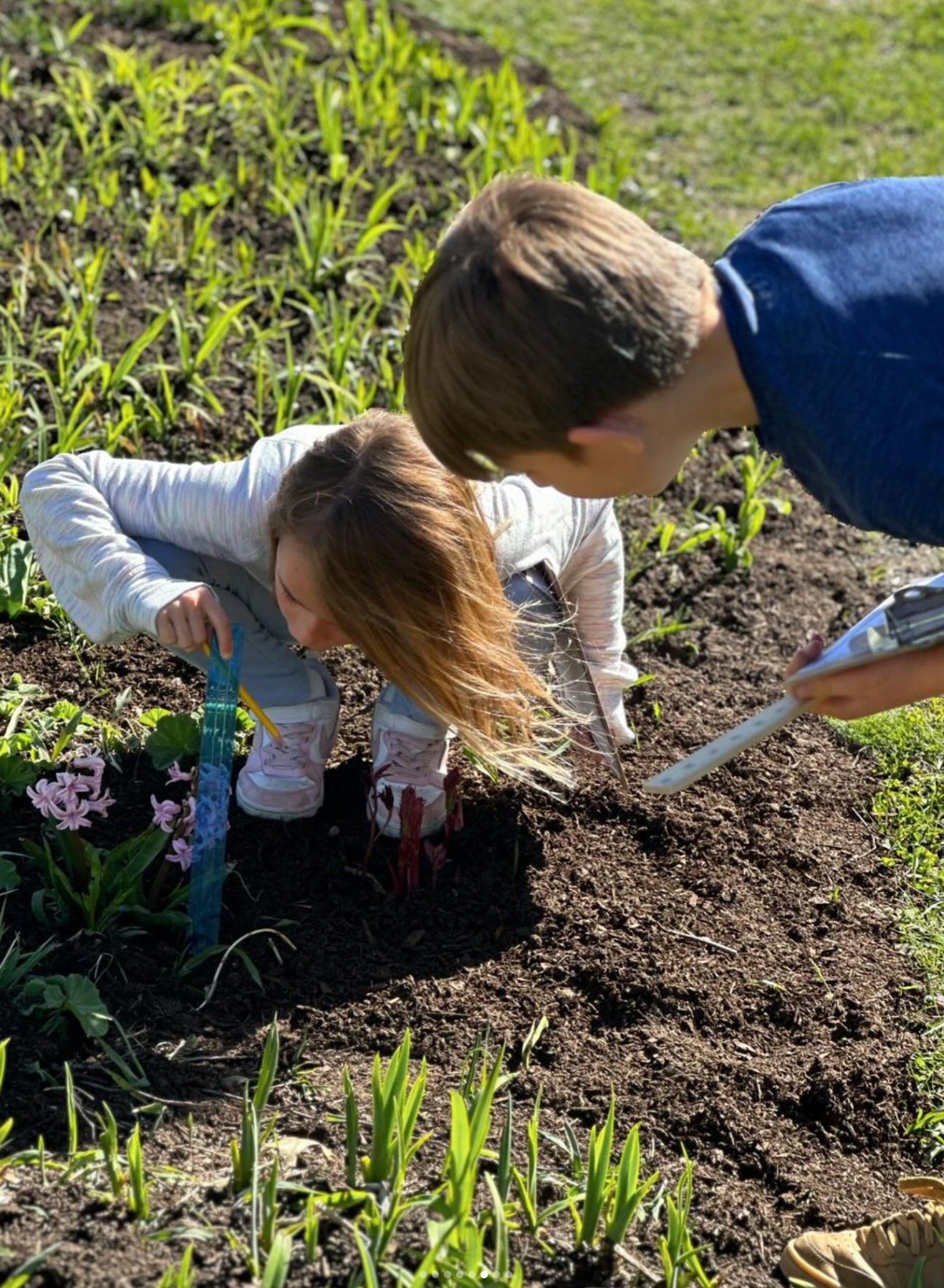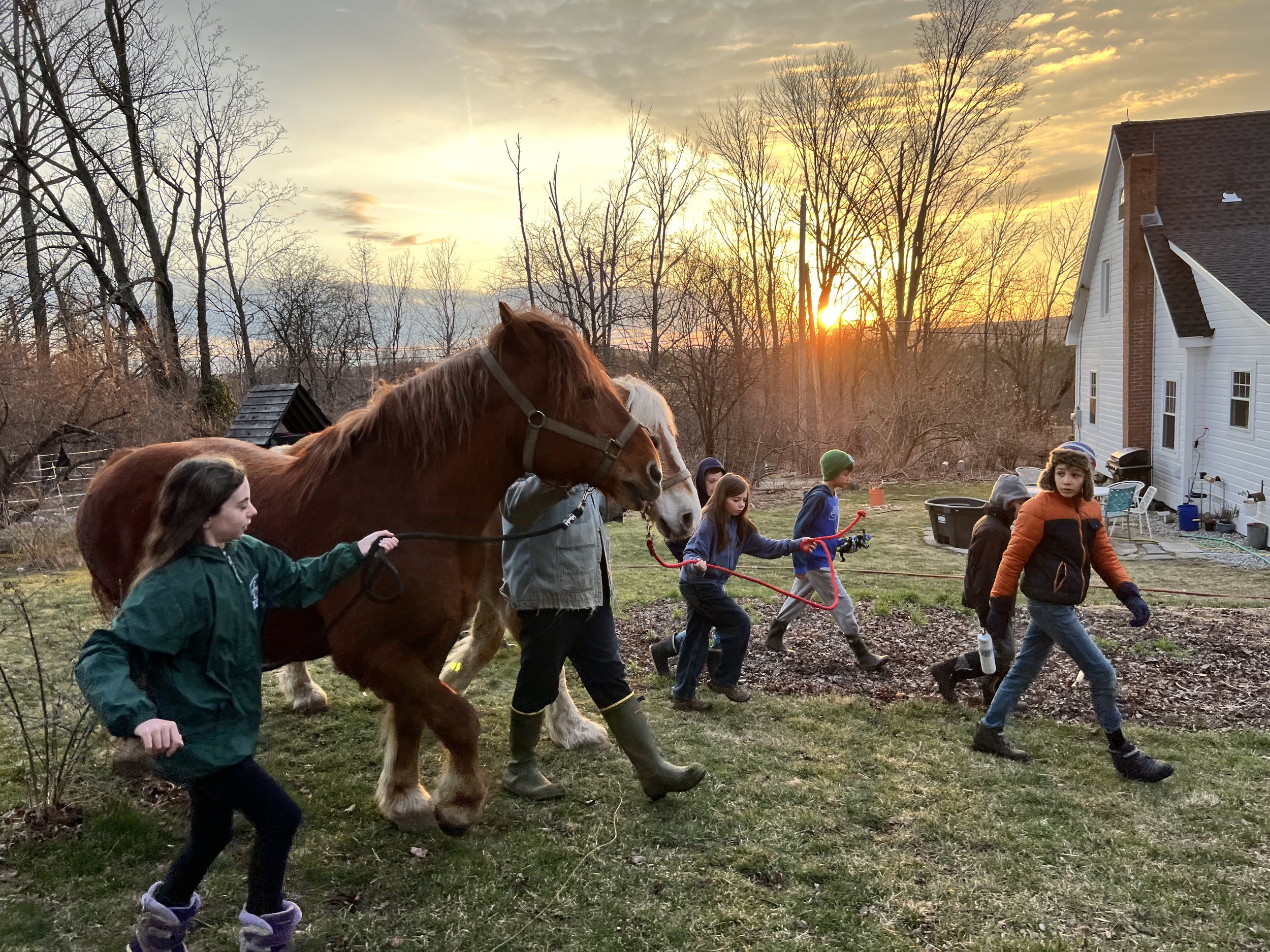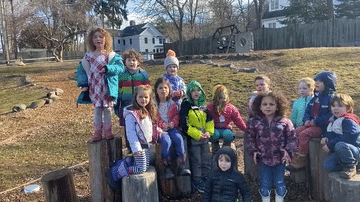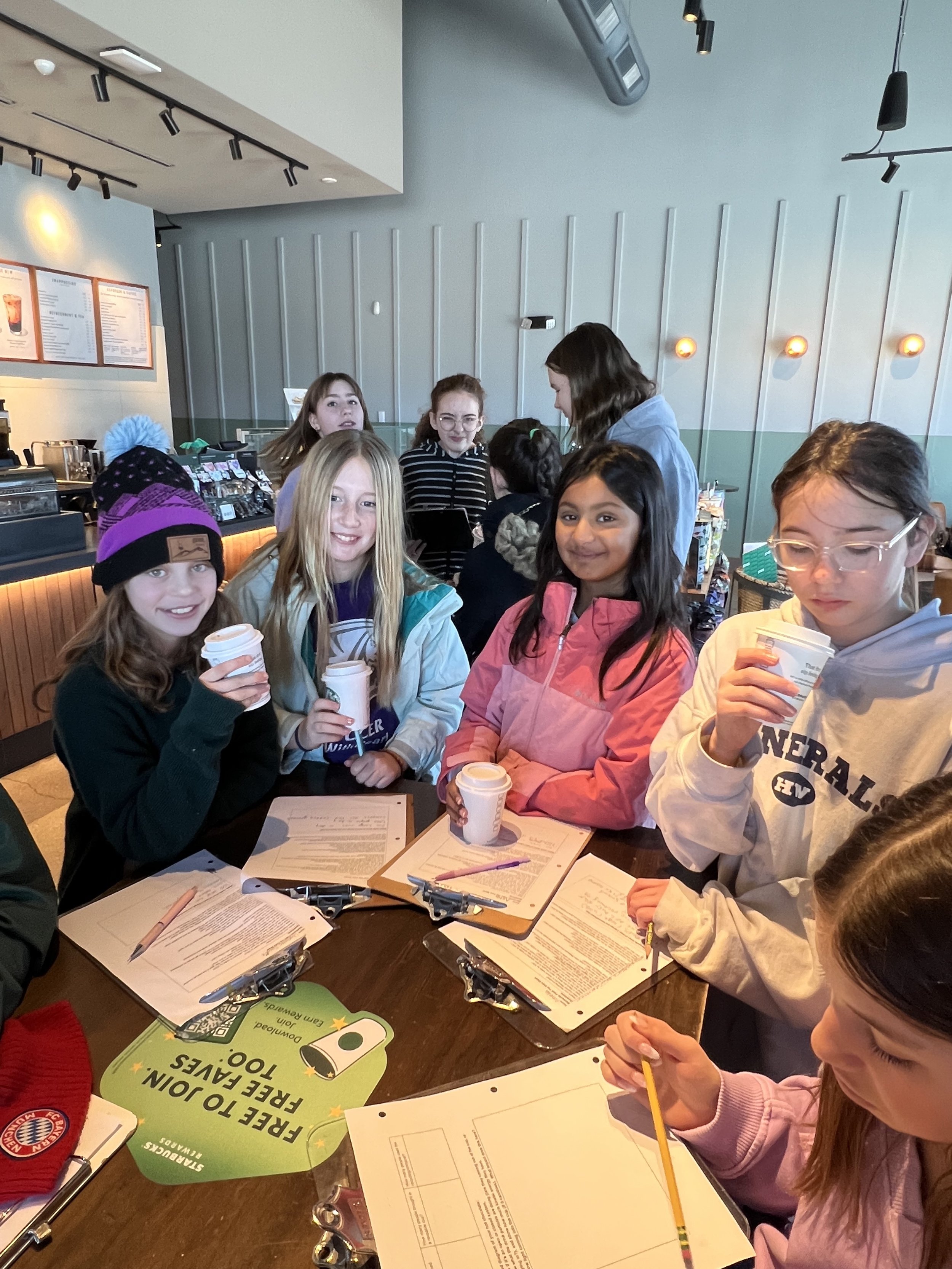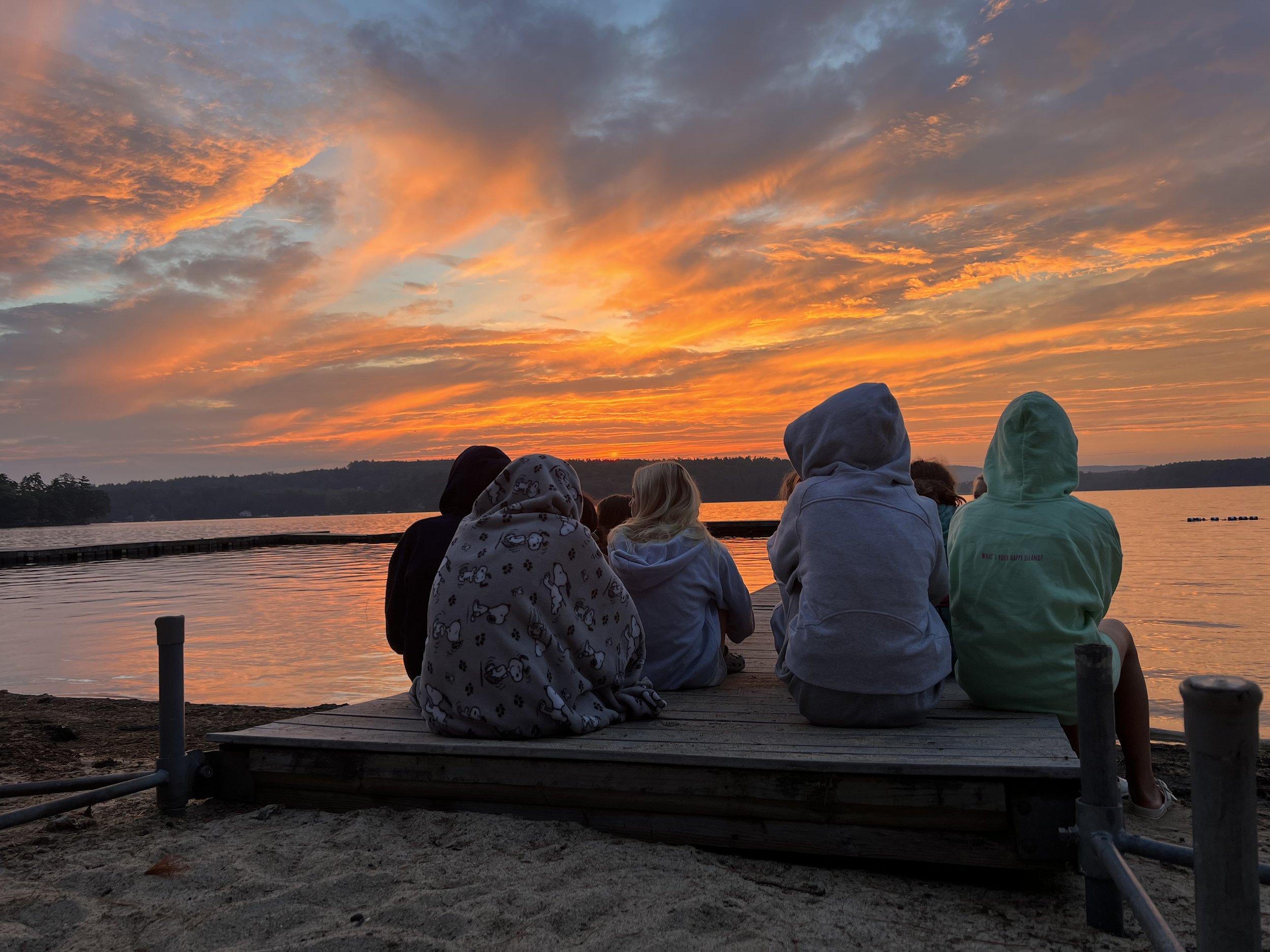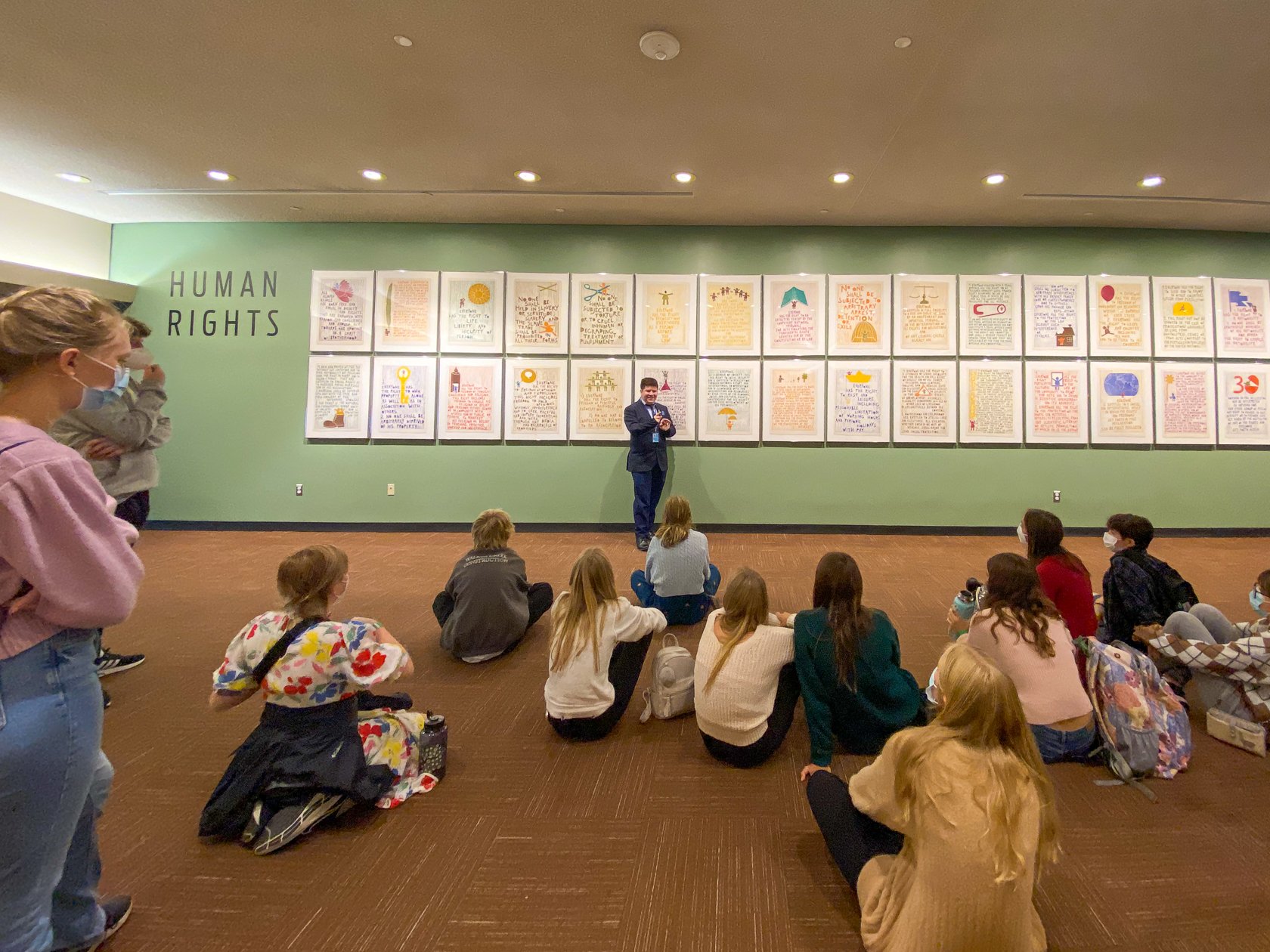At GUS, our curriculum is both thematic and spiraling, meaning students revisit key topics throughout their years, each time gaining a deeper and more complex understanding.
Read MoreI have always loved school and learning for its own sake, and this is the kind of philosophy and way of thinking that I try to cultivate with my middle school-aged students. I want them to learn to enjoy the process of learning, even when it is difficult and frustrating and when the material is challenging and not easily grasped on the first pass.
Read MoreThis fall, pre-K students got excited about fairy houses. They built them along the nature trail, on the playground, and eventually they made their way back into the classroom!
Read MoreHere at GUS, we are deeply aware of just how messy and unpredictable these middle school years can feel, both for students and for families. We are committed to meeting our students where they are, giving them routine, stability, and the support they need - even when the road feels bumpy or ambiguous!
Read MoreProject based learning builds something within a student, beyond the graded product. That something is connection.
Read MoreFrom shifting friendships to testing independence, even GUS students are bound to face many of the typical adolescent challenges, which can often be hardest on parents and caregivers.
Read MoreSpring celebrations and big projects at GUS are an opportunity to celebrate student learning growth, and quantify it in a way that extends beyond raw scores.
Read MoreSixth grade students recently visited The Farm School, a working farm and nonprofit organization dedicated to connecting people to the land.
Read MoreAt GUS, our child-centric approach to learning puts students at the center of their learning. What does that look like in practice? In pre-K it looks like a tree house in the classroom, and a story written and illustrated by students.
Read MoreAt GUS, we do education differently. Our place-based, inquiry-based approach creates authentic learning opportunities, like this trip to Starbucks, that nurture their natural sense of curiosity. Sometimes these explorations take us to the beach, our on the nature trail, or sometimes they take is to a local coffee shop as students question, make meaning, and get inspired.
Read MoreIn fifth grade science, the fifth grad theme, the land, features prominently in a yearlong study of geology, agriculture, and environmentalism. At the beginning of the school year, students take a close look at the land they see and interact with on a daily basis - the GUS campus - and consider some big questions that they continue to explore throughout the year: What land is important to us and why? How has the land changed over time, and how do we know?
Read MoreIn third grade at GUS, students take a closer look at the communities they are part of and embark on a yearlong exploration of community.
Read MoreWe teach children how to learn, not just to learn, so that they become caring, curious independent thinkers.
Read MoreThis year the much-anticipated trip had 73 GUS students and 17 faculty members make the trek to Moultonborough, NH to Camp Winaukee for two days and one night chock full of activity.
Read MoreAt GUS, our child-centric educational philosophy guides our student support efforts in and out of the classroom. Our approach to student support allows us to set high achievement expectations for all students, while also celebrating their unique strengths and challenges.
Read MoreFourth and second grade students recently completed a graphic novel writing mini-unit where they partnered to brainstorm, find inspiration, and write their own graphic novels.
Read MoreThe world map project has been part of the 8th grad humanities curriculum now for over 10 years. Here, Humanities Teacher Margaret Monteith interviews Jeffrey Bartsch, the originator of the project, who came back recently to help out.
Read MoreAfter reading Martin’s Big Words, by Maureen Rappaport, fourth grade students created stained glass artwork inspired by what they read.
Read MoreOne of the hallmarks of a GUS education is that learning is never restricted to the walls of our classrooms or to our physical campus. Instead, teachers use field trips as a way for our students to engage in real-world work and experiences and to see their learning come alive while building community and getting to know each other better. The much-anticipated 8th grade New York City Trip is a great example of this idea in action.
Read MoreThis September, the Upper School Retreat returned to Camp Winaukee for the first time since 2019. After a 2-year hiatus due to the COVID-19 pandemic, all upper school students and staff spent two days and one night at the summer camp, located on Lake Winnipesaukee in New Hampshire.
Read More






